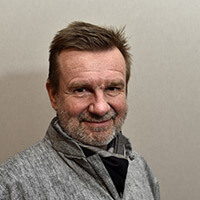Is it the end of an era? Rarely have we witnessed such a shake-up in management at the big watch companies. Richemont opened fire last November when it announced a major restructuring of the group which henceforth will be led by two men, Jérôme Lambert and Georges Kern, both Richemont stalwarts. They replace Richard Lepeu, Richemont CEO who is retiring at the end of the fiscal year, at the same time as CFO Gary Saage. This first wave of appointments, which included replacing the new power duo in their previous positions at the helm of Montblanc and IWC respectively, suggested a much wider overhaul was on the cards. The rumour had been doing the rounds for months, and was confirmed after Salon International de la Haute Horlogerie closed its doors at end January.

Alongside IWC and Montblanc, more changes at CEO level were announced at Vacheron Constantin, Piaget and Jaeger-LeCoultre. Coming after the arrival of Cyrille Vigneron at the head of Cartier in January 2016, and the appointment of Nicolas Bos at Van Cleef & Arpels in 2013, a new generation is clearly taking the reins. Only a handful of brands can expect to see the same faces around the boardroom table, starting with Roger Dubuis, proudly led by Jean-Marc Pontroué, Baume & Mercier whose CEO Alain Zimmermann appears to have found the winning formula for the brand, and lastly A. Lange & Söhne, the pride of Saxony under the stewardship of Wilhelm Schmid. This leaves Officine Panerai, the Florentine firm which since 2000 has answered to Angelo Bonati, 66, who should be next in line to hand over power.

Ups and downs
Is the Richemont reshuffle a consequence of the difficulties that have plagued the industry for the past 18 months? After the boom years that followed the subprime crisis, this reversal of fortunes lifted the lid on serious problems of overproduction, and probably also a distinct lack of foresight as to changes taking place within the luxury market. It should therefore come as no surprise that Vacheron Constantin and Piaget, which made some 200 staff redundant at end 2016 (in the wake of around 100 job cuts at Cartier in the spring), are among the brands making a fresh start under new guidance. After first-half figures to end September recorded a 43% drop in operating profit to €800 million – the €250 million paid to buy back unsold stock being partly to blame – Richemont executive chairman and controlling shareholder Johann Rupert spoke of “unacceptable” performance. Has the group marked his words? After sales fell 13% over six months, Richemont succeeded in reversing the trend and announced a 6% rise in sales for the quarter to end December 2016, although much of this upturn came courtesy of the group’s jewellery brands, which include Cartier.
The luxury conglomerate reports that Bulgari is in strong form, TAG Heuer is gaining market share, Hublot has recorded the best year in its history, and Chaumet is continuing its move upmarket.
LVMH, meanwhile, continued to fire on all cylinders, having posted record results in 2016. Both revenue and operating profit grew 6% to €37.6 billion and €7 billion respectively. LVMH specified that all business groups apart from selective distribution contributed to this result. They include Watches & Jewelry which saw 5% revenue growth to €3468 million, with operating profit of €458 million (+6%). The luxury conglomerate reports that Bulgari is in strong form, TAG Heuer is gaining market share, Hublot has recorded the best year in its history, and Chaumet is continuing its move upmarket. This paints a flattering picture, albeit minus Zenith which fails to get a mention, and for good reason: the Le Locle watchmaker has been struggling to find its direction, which has cost CEO Aldo Magada his job. He was appointed at the head of Zenith two and a half years ago by his “friend” Jean-Claude Biver, who has Zenith, Hublot and TAG Heuer under his wing. And who better to take over from Magada than Master Biver himself!

Challenges ahead
Despite a 10.6% decrease in net sales to CHF 7553 million in 2016, and an operating result of CHF 805 million (-44.5%), no heads have rolled at Swatch Group. CEO Nick Hayek had this to say following publication of key figures for 2016: “At Swatch Group, if certain brands post results that aren’t as good, we look at how the group can help them, whereas elsewhere it seems short-term profit matters more.” Hayek also promised there would be no job cuts: “It’s obvious that Swiss watches are as attractive as ever. I’m already getting calls from third-party brands that want to place new orders for movements and components. You’ll see, in three months’ time our customers will be complaining they aren’t getting enough supplies. Granted, our profit has fallen but only as a result of operating costs. So yes, we will be paying slightly less dividend and we’ll cut bonuses, but jobs won’t be affected.”

It’s a view not everyone will share. Recently interviewed, RJ-Romain Jerome CEO Manuel Emch spoke of the takeaways from the current crisis: “There is a real undercurrent and everything we’ve been used to these past years will be turned upside down. Consumption habits will change. Customers prefer to borrow rather than buy. Permanent instability is stepping up every trend. Of course Swiss watchmaking will be affected by this upheaval. It needs to change the very basis of its organisation. As it stands, few brands are equipped to rise to these challenges.” Note that Manuel Emch has announced he is stepping down from his position at RJ-Romain Jerome, where he will join the board of directors. Did someone say “challenges”?













